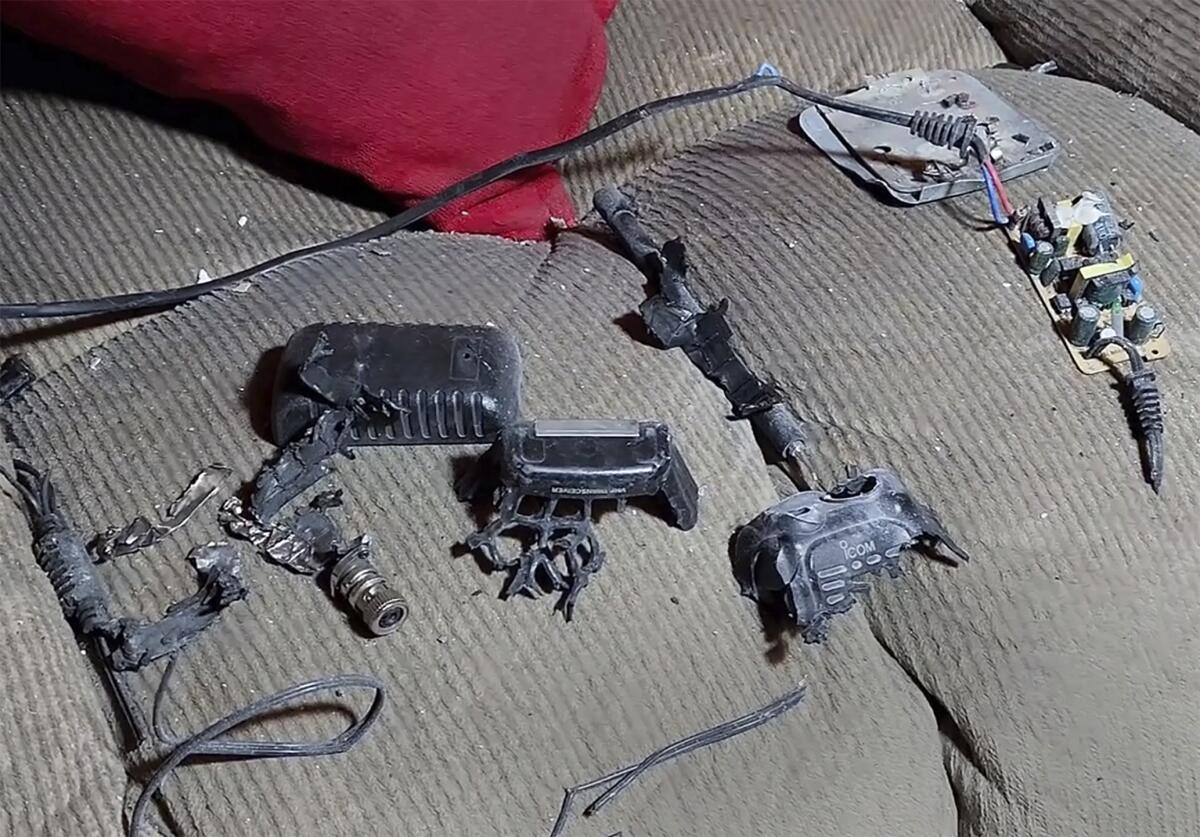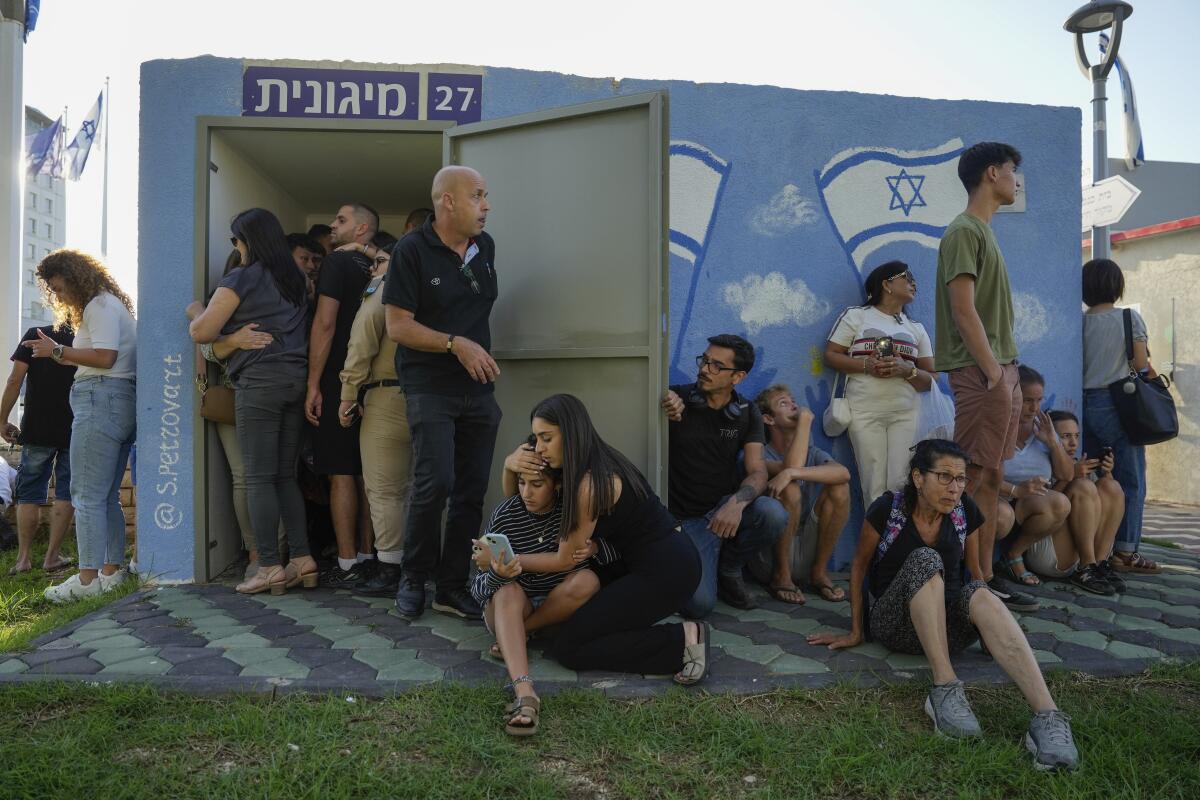As Israeli warplanes blared overhead, Hezbollah leader Hassan Nasrallah accused Israel on Thursday of “crossing all boundaries, red lines and laws” with a two-day wave of deadly explosions of electronic devices.
Even as he took the oath of office, Nasrullah acknowledged that the attacks dealt an “unprecedented blow” to the group.
Nasrullah’s speech was his first televised appearance since thousands of pagers and walkie-talkies exploded on Tuesday and Wednesday, killing 37 people and wounding nearly 3,000 more.
A woman sits in a cemetery where she visits the graves of slain Hezbollah members on the southern outskirts of Beirut on Thursday.
(Hussain Malla/Associated Press)
Israel has neither claimed nor denied responsibility for the attacks, but it is widely believed to have carried them out. U.S. officials said Israel provided them with some details later. It is believed that Israel somehow intercepted a shipment of devices purchased by Hezbollah and loaded them with explosives.
Nasrullah said the group has no intention of retreating. “This great and powerful blow did not and will not bring us down,” he said.
Amid fears of a full-scale war between Israel and Lebanon, both sides continued their airstrikes on Thursday.
The Israeli military has announced it will attack targets inside Lebanon to “degrade Hezbollah’s terrorist capabilities and infrastructure.”
As Nasrallah spoke from an undisclosed location, there were none of the usual gatherings to observe at the Hezbollah-affiliated convention center, a heightened security measure by the group after what many say is its most significant security breach we have encountered since the beginning.
The attack included the simultaneous detonation of nearly 5,000 pagers that were distributed to Hezbollah fighters and officials across the country. A day later, about 1,000 walkie-talkies also exploded. Hezbollah used old communication technologies to evade control of mobile phones.

In this video, a guide shows an explosion inside a house in Baalbek, eastern Lebanon, on Wednesday.
(Associated Press)
In recent days, Israel has repeatedly expressed a more aggressive stance toward Hezbollah. On Thursday, the Israeli military said its chief of staff, Lt. Gen. Herzi Halawi, had recently approved new plans for the northern conflict zone. A day earlier, Defense Minister Yoav Gallant announced that the conflict was entering a “new phase.”
Gallant said Thursday that he had been in contact with Defense Secretary Lloyd Austin overnight about “defending Israel against threats from Hezbollah.”
Nasrullah said the technical and security committees are investigating this incident. He downplayed the impact of the attack on Hezbollah’s military leadership, saying senior commanders were not affected because they were using old pagers.
The conflict between Israel and Lebanon was renewed after Hezbollah, an Iranian-backed extremist group and political party, launched a missile attack on Israel on October 8. Israel has been under siege for nearly a year.
Although fighting between Israel and Hezbollah has remained relatively limited, some 90,000 people have been forced to flee their homes in southern Lebanon. Some 60,000 people are displaced in northern Israel.
Nasrullah said Hezbollah will support Hamas.

Israelis take shelter next to a shelter as the siren sounds for incoming rockets from Lebanon, in Nahariya, northern Israel, on Thursday.
(Baz Ratner/Associated Press)
“We say (Israeli Prime Minister Benjamin) Netanyahu and Gallant, the Lebanese front will not stop until the aggression on Gaza stops,” Nasrallah said.
The two-day attacks have severely disrupted Hezbollah’s internal communications capabilities, but the group maintains a large arsenal of weapons.
Israeli analysts believe the attacks on electronic equipment are a prelude to a wider conflict.
“You don’t do this, you kill thousands of people and you think there will be no war,” said the retired brigadier. General Amir Avivi, now a military analyst, spoke about this to the Times of Israel.
Staff writer Boulos reported from Beirut and staff writer King from Tel Aviv.
